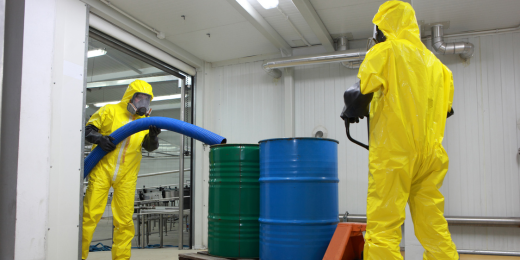A Biased View of Reclaim Waste
A Biased View of Reclaim Waste
Blog Article
Reclaim Waste for Beginners
Table of ContentsSome Ideas on Reclaim Waste You Need To KnowSome Known Details About Reclaim Waste Reclaim Waste Fundamentals ExplainedAn Unbiased View of Reclaim WasteThe Best Strategy To Use For Reclaim Waste
Discover the types, occurrences, and forms of liquid waste. Domestic sewer waste refers to the waste and products from a property septic system. This type of waste is produced by human beings in homes, colleges, and other buildings. This only consists of septic systems that have a drain area. The proper monitoring and disposal of domestic sewer waste call for fluid waste to be transferred to a sewer treatment plant where the proper methods and tools are applied to detoxify and deal with waste.
Commercial waste typically includes prospective dangers, such as combustible materials or a combination of fluid and strong waste items, and requires an advanced and thorough disposal procedure. The disposal of business waste normally involves the filtration of waste prior to transport to make certain safe and appropriate disposal. Industrial waste is created from byproducts and overflow of commercial processes and production.
This sort of waste can not make use of the exact same sewage management transport or procedures as septic or industrial liquids. The industrial waste monitoring procedure needs the inspection and screening of liquid waste prior to it undertakes the disposal procedure (liquid waste disposal melbourne). Runoff waste is the liquid waste that comes from runoff and excess stormwater in highly populated locations or cities
Drainage waste can trigger contamination and flooding if not managed properly. Guaranteeing appropriate waste management can prevent disasters and minimize ecological damage.
Not known Incorrect Statements About Reclaim Waste
Get in touch with PROS Services today to discover concerning our waste administration and disposal solutions and the appropriate ways to look after the liquid waste you generate.
(https://profile.hatena.ne.jp/reclaimwaste1/)This so-called 'wastewater' is not only an essential resource yet, after therapy, will certainly be released to our land, rivers or the ocean. Utilized water from bathrooms, showers, bathrooms, kitchen area sinks, washings and commercial processes is known as wastewater.

water utilized to cool machinery or clean plant and devices). Stormwater, a type of wastewater, is runoff that flows from farming and metropolitan locations such as roof coverings, parks, gardens, roads, paths and rain gutters right into stormwater drains pipes, after rainfall. Stormwater streams without treatment straight to regional creeks or rivers, at some point getting to the ocean.
Reclaim Waste - Questions
In Queensland, most wastewater is dealt with at sewage therapy plants. Wastewater is delivered from residential or industrial websites with a system of sewers and pump terminals, understood as sewage reticulation, to a sewer therapy plant. City governments construct, keep and run most sewage therapy plants. Operators are certified under the Environmental Management Act 1994 to release cured wastewater at an acceptable environmental criterion into rivers.
The Department of Natural Resources suggests local federal governments about managing, operating and maintaining sewage systems and treatment plants. In unsewered areas, city governments might call for homeowners to set up individual or family sewer treatment systems to treat domestic wastewater from bathrooms, kitchens, shower rooms and washings. The Department of Natural Resources authorizes making use of home systems when they are proven to be efficient.
The majority of stormwater receives no therapy. In some brand-new subdivisions, therapy of some stormwater to get rid of trash, sand and crushed rock has actually started utilizing gross pollutant catches. Wastewater therapy occurs in 4 stages: Removes strong issue. Bigger solids, such as plastics and other things mistakenly released to sewers, are removed when wastewater is passed via displays.
Wastewater after that flows right into big containers where solids clear up and are gotten rid of as sludge. Oil and residue are skimmed from the surface area. Utilizes tiny living microorganisms referred to as micro-organisms to break down and get rid of continuing to be dissolved wastes and fine bits. Micro-organisms and wastes are included in the sludge. Removes nitrogen and check out this site phosphorus nutrients that could create algal flowers in our waterways and endanger marine life.
Some Known Questions About Reclaim Waste.
Nutrient elimination is not offered at all sewer treatment plants due to the fact that it requires costly specialist equipment. Clear fluid effluent generated after treatment may still consist of disease-causing micro-organisms - liquid waste disposal melbourne.

This normally means wastewater has to be dealt with or impurities removed before it can be released to rivers. The majority of wastewater moves right into the sewerage system. Under the Act, city governments administer approvals and permits for eco pertinent tasks (Ages) including wastewater launches that may have a regional influence. The division carries out approvals and permits to Ages entailing wastewater releases that may have a regional or statewide impact.
An Unbiased View of Reclaim Waste
Tracking supplies valid info about water quality and can verify that permit conditions are being fulfilled. The details obtained with surveillance gives the basis for making water quality decisions.
Report this page